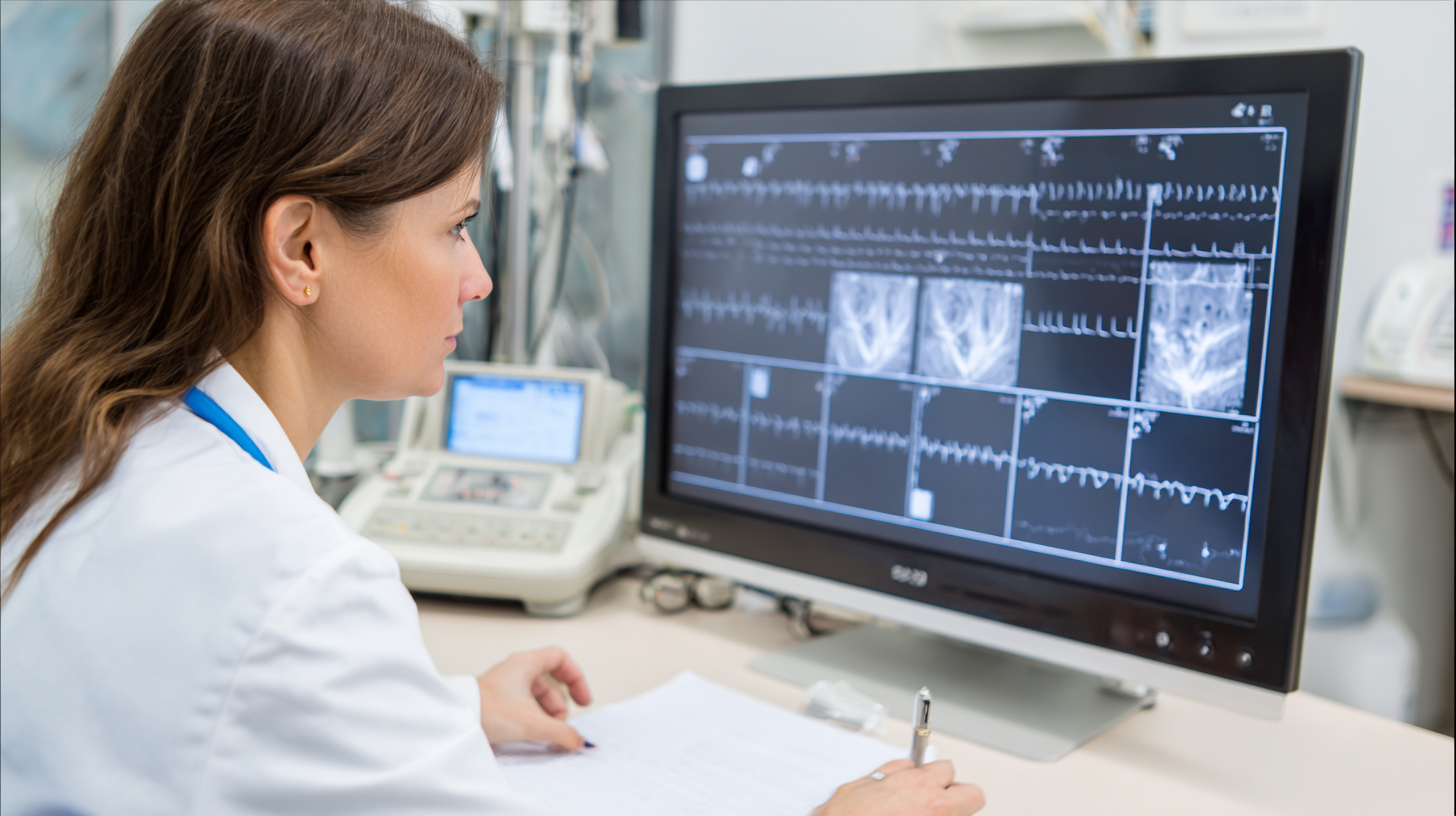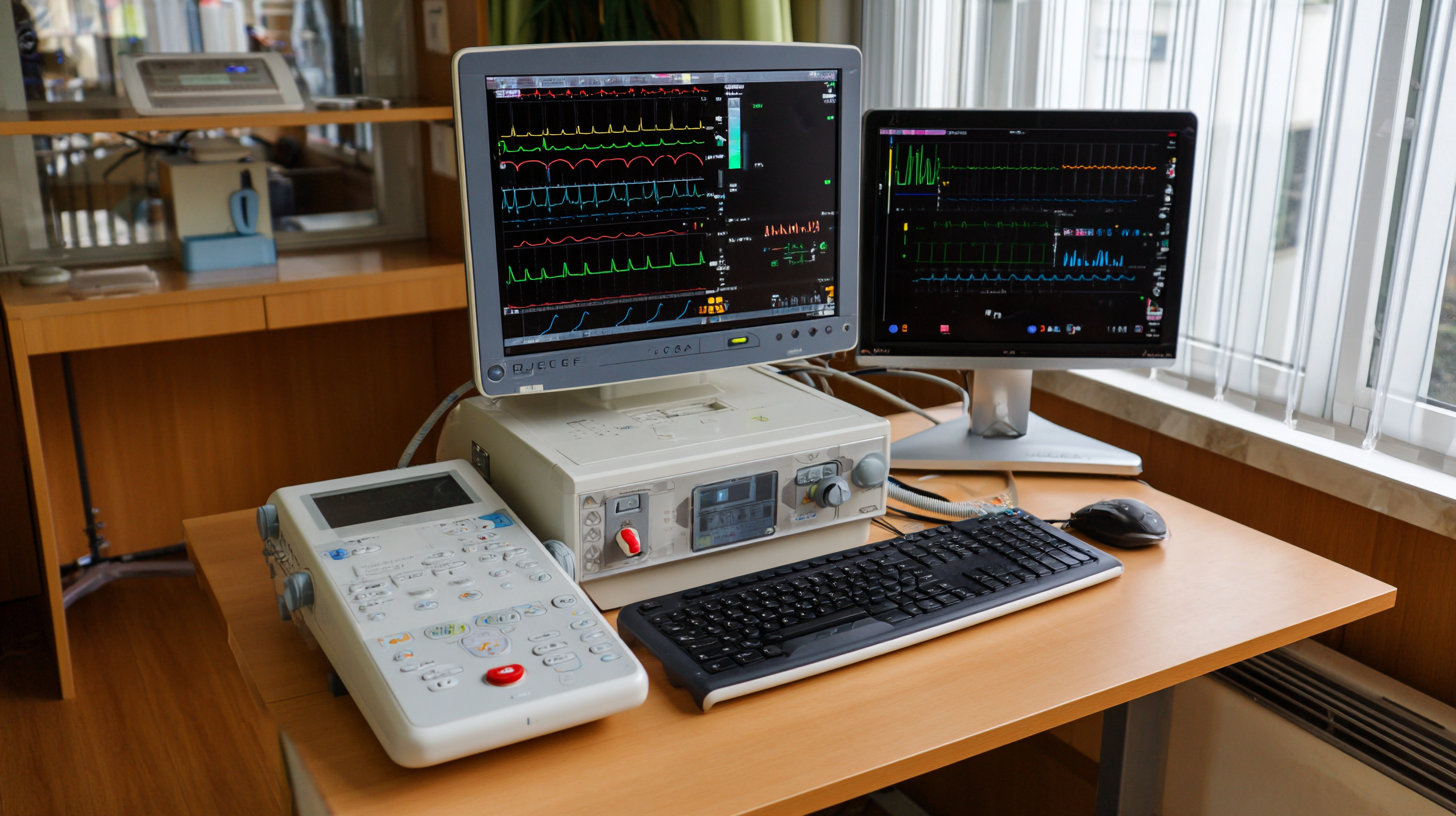Bankim Nagar, Siliguri, West Bengal
- GST NO. : 19BHDPS7640K1ZR
Ultimate Checklist for Choosing the Best Ecg Equipment for Your Clinic
In the rapidly evolving healthcare landscape, the importance of advanced ECG equipment cannot be overstated. As reported by MarketsandMarkets, the global ECG devices market is projected to reach USD 8.4 billion by 2025, driven by the increasing prevalence of cardiovascular diseases and the rising demand for monitoring systems. Selecting the right ECG equipment for your clinic is crucial, not only for delivering accurate diagnoses but also for ensuring patient safety and satisfaction. With the remarkable reputation of "Made in China" products, many clinics are turning their attention to high-quality ECG devices that are now competing on a global scale. This ultimate checklist for choosing the best ECG equipment highlights essential factors to consider, ensuring that healthcare providers can invest in technology that upholds quality while meeting the diverse needs of their patients.

Essential Features to Look for in ECG Equipment for Clinics
When selecting ECG equipment for your clinic, it’s crucial to focus on essential features that ensure accurate and reliable results. One of the first aspects to consider is the device's portability. If your clinic frequently requires mobile assessments, opt for lightweight and compact ECG machines that can be easily transported. Additionally, features like wireless connectivity can enhance flexibility and ease of use in various settings.

Another vital feature is the quality of the data output. Look for ECG equipment that offers high-resolution displays and clear waveforms. This clarity allows for better interpretation of results, which can lead to timely diagnosis and treatment. Investing in machines that provide advanced analysis tools can also boost your clinic’s diagnostic capabilities, enabling healthcare professionals to detect abnormalities more efficiently.
Moreover, consider the software compatibility of the ECG machine. Modern ECG systems often come with integrated software solutions that streamline data management and facilitate easy access to patient records. Ensure that the equipment supports features like data sharing and compatibility with electronic health records (EHR) systems to improve workflow and patient care delivery in your clinic.
Understanding Different Types of ECG Machines Available in the Market
When selecting the best ECG equipment for your clinic, understanding the different types of ECG machines available in the market is crucial. The global mobile ECG devices market is showing significant growth, valued at USD 4.13 billion in 2024 and projected to reach USD 8.89 billion by 2033. This increase highlights the rising demand for portable and user-friendly ECG solutions, making mobile devices an attractive option for clinics aiming to enhance patient monitoring capabilities.
Among the various ECG equipment types, diagnostic electrocardiographs are particularly noteworthy. This market is expected to reach a valuation of $15.18 billion by 2032, driven by advancements in technology and increased adoption of ECG monitoring in various healthcare settings. Furthermore, ECG telemetry devices are gaining traction, with forecasts predicting growth to US$ 5.72 billion by 2033. These devices facilitate continuous and remote heart monitoring, catering to the needs of patients requiring long-term ECG evaluations. Understanding these diverse types allows clinics to make informed decisions, ensuring they choose the right equipment to effectively meet their patients' needs.
Key Specifications that Ensure Accuracy and Reliability in ECG Readings
When selecting ECG equipment for your clinic, ensuring accuracy and reliability in ECG readings is paramount. Key specifications such as resolution, waveform processing, and lead consistency play a crucial role. A higher resolution provides clearer and more detailed readings, which is essential for diagnosing cardiac conditions. Additionally, advanced waveform processing algorithms can filter out noise and enhance the quality of the signal, leading to more precise interpretations by healthcare professionals.
Another important specification to consider is the number of leads the ECG equipment can support. A standard 12-lead ECG is widely recommended as it provides a comprehensive view of the heart’s electrical activity. This allows for a more thorough analysis, aiding in the identification of various heart diseases. Furthermore, equipment that offers real-time monitoring and automatic reporting features can significantly boost efficiency and accuracy in a clinical setting, enabling providers to make quicker and informed decisions regarding patient care.
The Importance of Brand Reputation and Quality Assurance in ECG Equipment
When selecting ECG equipment for your clinic, understanding the significance of brand reputation and quality assurance is paramount. A reputable brand often signifies not only a history of reliability but also commitment to innovation and compliance with stringent health regulations. Established brands typically invest in research and development, ensuring their equipment is at the forefront of technological advancements. This means that, by choosing well-regarded manufacturers, clinics can expect superior functionality and durability in their ECG machines, which translates to enhanced patient care.
Moreover, quality assurance processes are critical in the healthcare industry. ECG equipment must meet specific safety standards and undergo rigorous testing to ensure it operates correctly and accurately. When a brand prioritizes quality assurance, it not only safeguards the wellbeing of patients but also protects healthcare professionals from potential liabilities associated with faulty equipment. Therefore, clinics should thoroughly evaluate both the reputation of the ECG equipment brand and the quality assurance protocols they utilize, as these factors are essential for ensuring the provision of safe and effective cardiac monitoring.
Ultimate Checklist for Choosing the Best ECG Equipment for Your Clinic
| Feature | Importance | Considerations | Rating Scale (1-5) |
|---|---|---|---|
| Brand Reputation | High | Established history and market presence | 4 |
| Quality Assurance | Critical | Certifications and compliance with standards | 5 |
| Ease of Use | High | User-friendly interface and training provided | 4 |
| Technical Support | Important | Availability and responsiveness | 4 |
| Price vs. Performance | High | Affordable with reliable performance | 3 |
| Warranty | Critical | Length of coverage and conditions | 5 |
Budgeting for ECG Equipment: Cost vs. Value in Clinical Settings
When selecting ECG equipment for your clinic, budgeting plays a critical role in balancing cost and value. According to a report by Grand View Research, the global ECG market is expected to reach $6.4 billion by 2025, driven by the increasing prevalence of cardiovascular diseases. This growth emphasizes the need for clinics to invest wisely in ECG technology, ensuring that they not only stay competitive but also deliver high-quality patient care.
Understanding the cost implications of ECG devices is key. While higher-priced models often come with advanced features, like wireless connectivity and comprehensive diagnostic tools, they might not always align with every clinic's needs or budget. A 2021 study published in the Journal of Clinical Cardiology indicates that clinics could save up to 30% on total expenditures by carefully evaluating their ECG equipment choices and opting for systems that adequately meet their requirements without compromising on quality. Thus, when budgeting for ECG equipment, it’s crucial to consider both upfront costs and long-term value, ensuring that your investment translates into improved patient outcomes and operational efficiency.


